Stockard Channing’s name resonates across generations of fans who remember her unforgettable roles in film, television, and theater. Best known for her tough-as-nails portrayal of Betty Rizzo in the classic musical Grease and her award-winning role as First Lady Abbey Bartlet in The West Wing, Channing’s career spans over five decades. This in-depth look at Stockard Channing explores her biography, personal life, and illustrious career, shedding light on what makes her one of the most respected actresses of her time.
Early Life: From Privilege to Passion for Acting
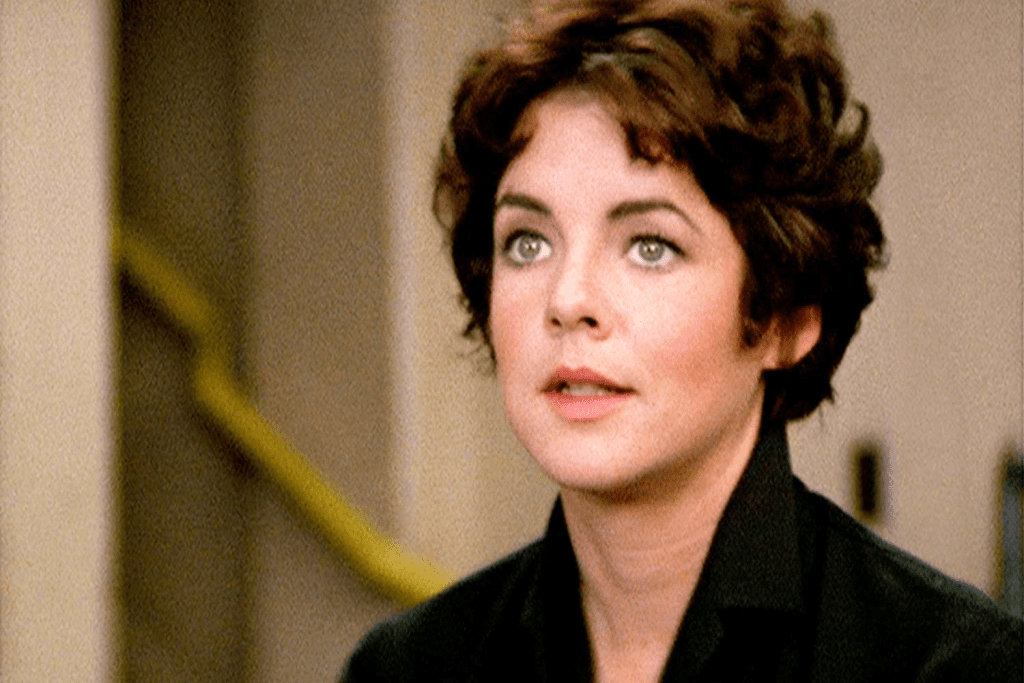
Born Susan Antonia Williams Stockard on February 13, 1944, in New York City, Channing grew up in a privileged Manhattan family. Her father, Lester Napier Stockard, worked in the shipping business, while her mother, Mary Alice, had ties to the theater world. This exposure to the arts ignited Channing’s passion for acting from an early age.
Channing attended the Chapin School in New York City before moving on to Radcliffe College, where she majored in history and literature. Her academic background deepened her appreciation for storytelling, which would later inform her nuanced acting performances. Upon graduation, she pursued acting seriously, enrolling at HB Studio in New York to refine her craft.
Broadway Beginnings: Stockard Channing’s Rise on the Stage
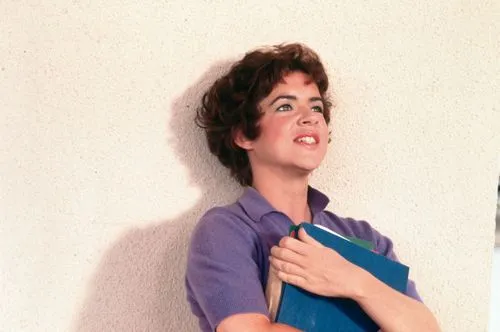
Channing’s acting career began in regional theaters across the United States, where she gained experience and honed her skills. Her Broadway debut came in 1971 with Two Gentlemen of Verona, a musical adaptation of Shakespeare’s comedy. Her energy and confidence on stage were widely praised, marking the start of a successful journey in the theater world.
Her breakthrough came in 1973 with the television movie The Girl Most Likely to…, where she played Miriam Knight, a woman who undergoes plastic surgery and seeks revenge on those who mistreated her. Channing’s performance was both darkly comedic and powerful, bringing her wider recognition and hinting at her potential as a leading actress.
Becoming Betty Rizzo: A Defining Role in Grease

In 1978, Channing landed the iconic role of Betty Rizzo in the blockbuster film Grease. Although she was 33 years old at the time, Channing perfectly captured the essence of a high school “bad girl” with a heart of gold. Her performance of “There Are Worse Things I Could Do” added emotional depth to the character, showcasing Rizzo’s vulnerability beneath her tough exterior.
Channing’s portrayal of Rizzo was a defining moment in her career. The film became a cultural phenomenon, making Rizzo one of the most beloved characters in cinematic history. Her role in Grease not only cemented her place in Hollywood but also demonstrated her ability to bring nuance to a character that could have easily been dismissed as a mere “mean girl.”
Broadening Her Horizons: Television and Film Success
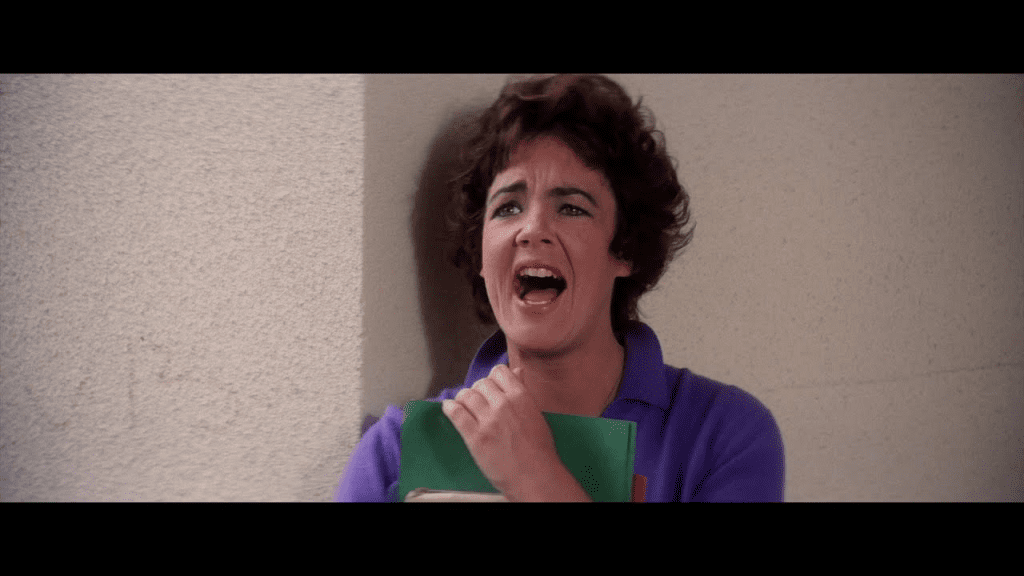
After Grease, Channing continued to build an impressive resume across film, television, and stage. In the early 1980s, she appeared in films like The Big Bus (1976), Safari 3000 (1982), and Without a Trace (1983). Her range as an actress shone through, as she seamlessly transitioned between comedic and dramatic roles.
Television provided some of Channing’s most critically acclaimed performances. In 1985, she starred in the TV adaptation of A Day in the Death of Joe Egg, a role that earned her a Tony Award nomination when she performed it on stage. In 1998, her role in The Baby Dance, a TV movie about a woman struggling with infertility, earned her Emmy and SAG Award nominations, further solidifying her reputation as a versatile actress.
The West Wing: Abbey Bartlet and Television Stardom
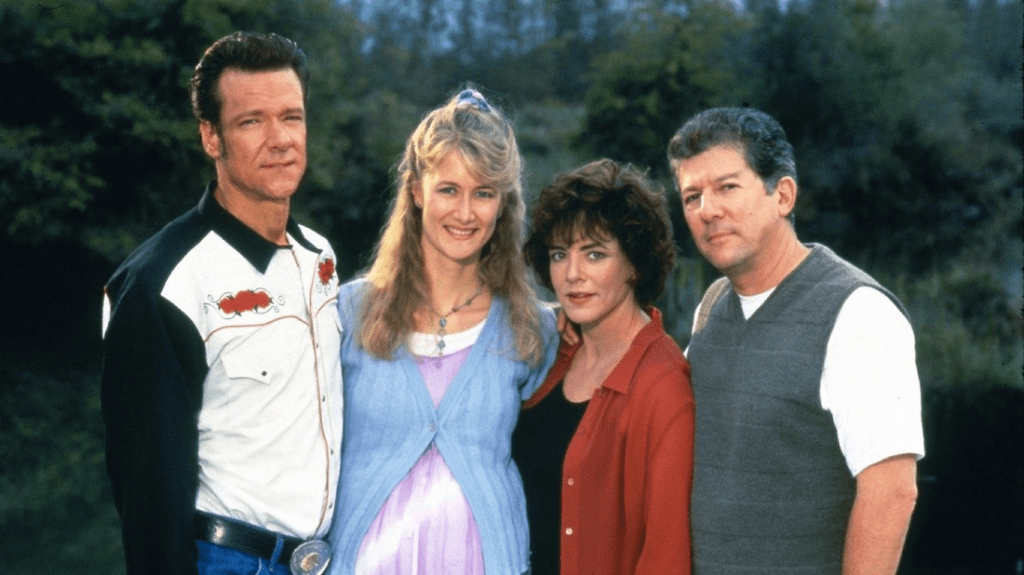
In 1999, Channing joined the cast of The West Wing as First Lady Abbey Bartlet, a strong-willed, intelligent character who often clashed with political norms. Her performance was lauded for its depth, intelligence, and humanity, making Abbey one of the most beloved characters on the series.
For her role as Abbey, Channing received multiple Emmy nominations, winning the award twice—in 2002 and 2004. This role not only brought her back into the mainstream spotlight but also cemented her status as one of television’s most respected actresses.
Return to Theater: A Passion That Never Fades
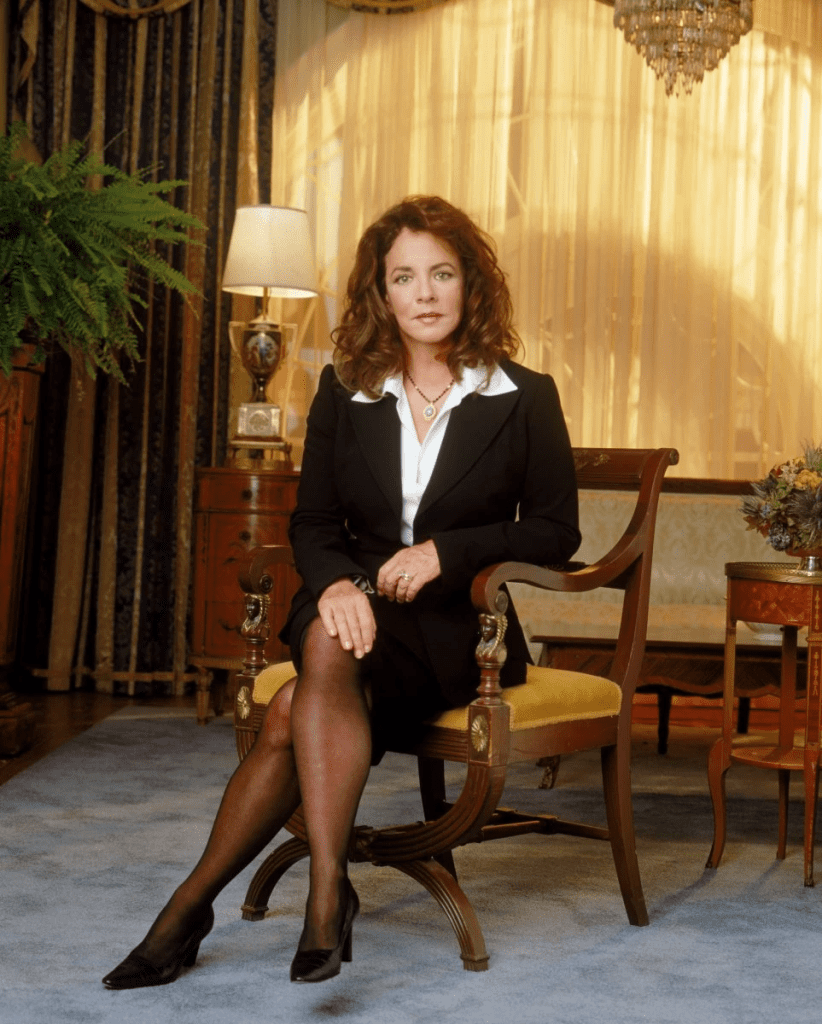
Despite her success in film and television, Stockard Channing has always remained deeply connected to the theater. Her love for live performance is evident in her continued appearances on Broadway. Her performance in Six Degrees of Separation (1990), where she played Ouisa Kittredge, earned her a Tony Award for Best Actress in a Play. Channing’s ability to deliver powerful stage performances has been a hallmark of her career, consistently earning critical acclaim and audience admiration.
In 2013, Channing starred in the Broadway revival of Other Desert Cities, once again proving her prowess on stage. Her enduring presence in the theater world underscores her dedication to the craft of acting and her commitment to storytelling.
Personal Life: Balancing Fame with Fulfillment
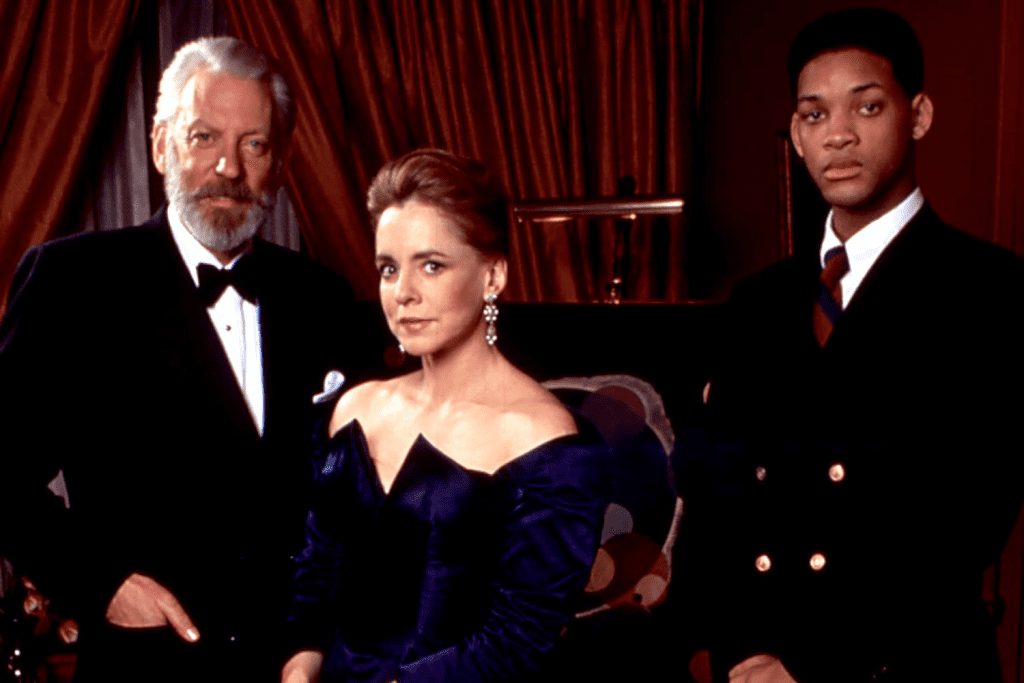
Channing’s personal life has been marked by media scrutiny, especially concerning her multiple marriages—she has been married and divorced four times. Despite this, she has maintained a private stance regarding her relationships, focusing on her career and personal fulfillment. While Channing has no children, she has expressed fulfillment through her work and close family relationships, embodying grace and resilience throughout her career.
Current Endeavors: Stockard Channing’s Legacy
Today, Stockard Channing remains active in the entertainment industry, although at a slower pace. She has appeared in independent films and made guest appearances in popular TV shows, such as The Good Wife in 2012, which earned her another Emmy nomination. Channing’s recent roles reflect her artistic sensibilities, choosing quality over quantity and focusing on projects that resonate with her.
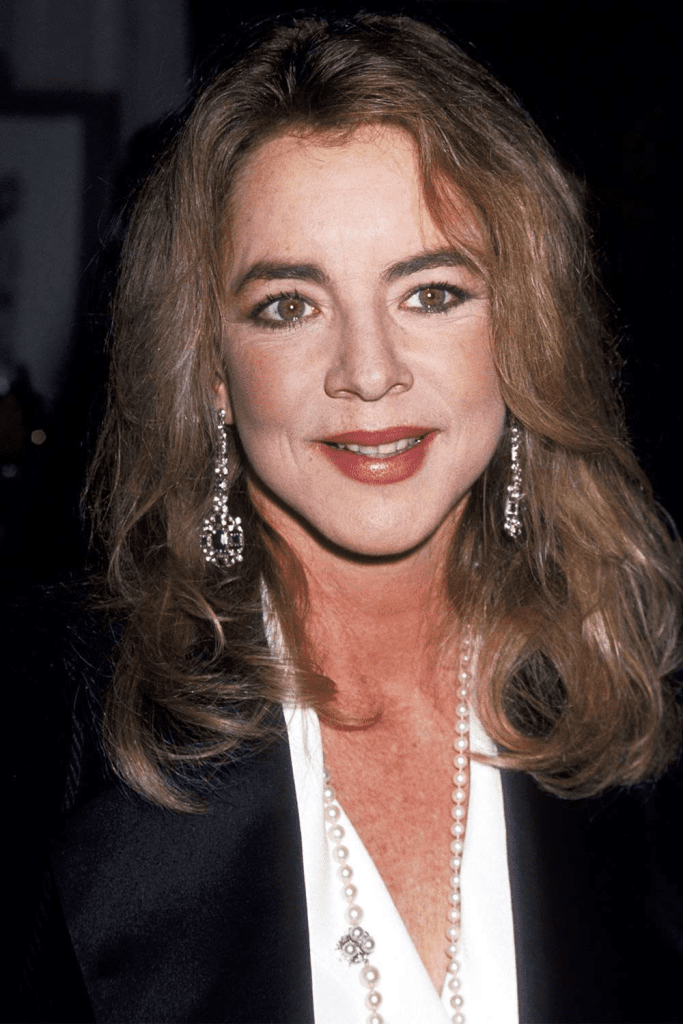
In addition to acting, Channing continues to engage with audiences through theater, both in London’s West End and on Broadway. Her enduring passion for the stage highlights her dedication to the craft and her desire to connect with audiences on a personal level.
Conclusion
Stockard Channing’s career is a testament to versatility, depth, and resilience. From her breakout role as Betty Rizzo in Grease to her Emmy-winning turn as Abbey Bartlet in The West Wing, she has left an indelible mark on film, television, and theater. With a career spanning over five decades, Channing’s legacy as one of the most talented and respected actresses of her generation is secure.
Her influence extends beyond her roles, inspiring future generations of actresses with her intelligence, grace, and commitment to the craft. Stockard Channing’s story is not just one of success; it’s a narrative of enduring passion, artistic integrity, and a love for acting that continues to shine brightly.


